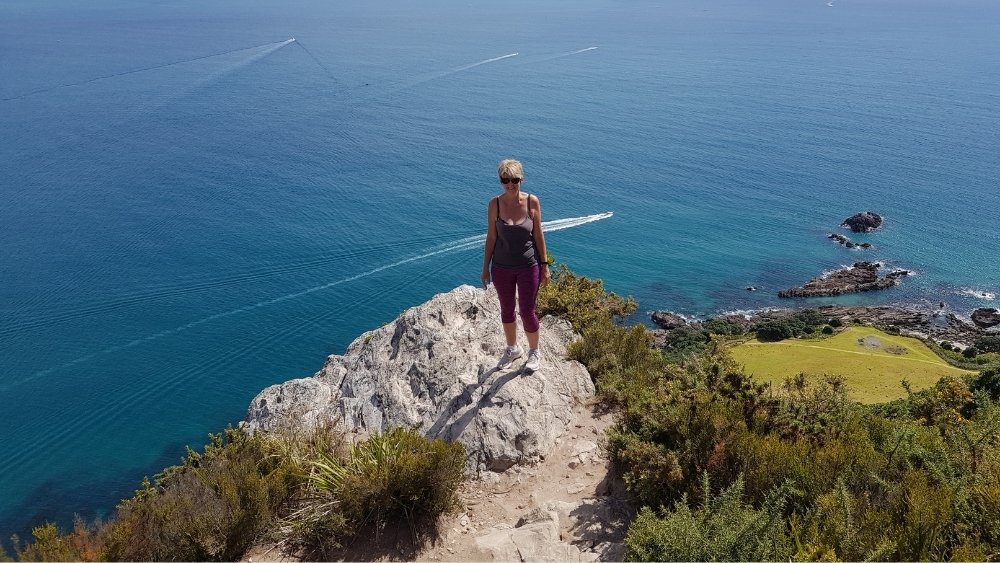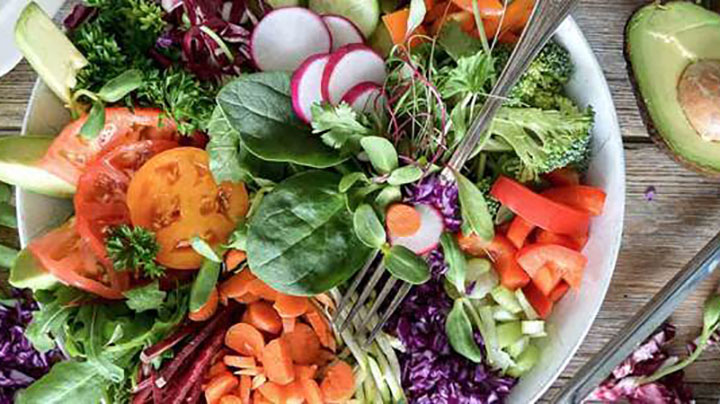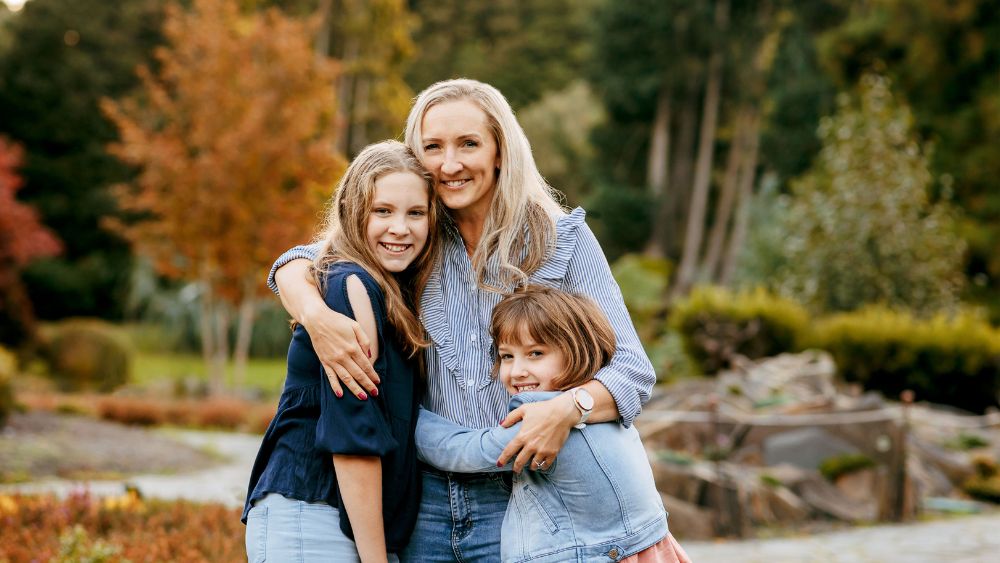Cancer is the second leading cause of death worldwide, and a diagnosis can hit like a bolt from above – unforeseen, random, and regularly chalked up to something beyond our control.
According to the Ministry of Health NZ, cancer is the country’s single biggest cause of death1. Though not all cancers can be prevented, we all have a part to play in lowering our risk of developing cancer.
So, what are some of the most preventable types of cancer? And what can you do to lower your risk?
SKIN
Skin cancer is the most common cancer in New Zealand. Over 90% of skin cancer is caused by too much exposure to the sun and its UV rays which damage skin cells. There are two types of skin cancer – melanoma and non-melanoma2. New Zealand has one of the highest melanoma skin cancer rates in the world, with 6,000 melanoma diagnosis in New Zealand every year3.
While the survival rate from this type of cancer is high, the focus shouldn't be on beating it, it should be on prevention. Cancer Society NZ guidelines on avoiding skin cancer are:
- SLIP: Wear clothing that covers as much of your skin as possible - a shirt with collar, light long sleeves, trousers, or long skirts or shorts. Or keep to the shady areas where possible during key sunshine hours of 10am – 4pm.
- SLOP: Apply plenty of sunscreen that is water-resistant with at least SPF30 before you head outdoors (at least 20 mins before). Reapply every 2 hours especially after being in water or sweating.
- SLAP on a hat that will protect your head, neck, face, and ears. A broad-brimmed hat is recommended over a cap.
- WRAP on some sunglasses that can protect your eyes from UV radiation.
While we need to protect ourselves year-round, it’s important to remember that from September to April between the hours of 10am – 4pm, UV levels are at their highest, making it even more important to slip, slop, slap, and wrap. If you’re out on the water or in the mountains, the sun can also reflect off the snow, sand, or concrete so make sure to regularly reapply your sunscreen – even in winter4.
CERVICAL
Cervical cancer is caused when the cells in the cervix (the lower part of the uterus) grow abnormally. Most cervical cancer is caused by human papilloma virus (HPV). Cervical screening (also known as a smear test) is one of the most important things you can do to prevent or detect cervical cancer early5. New Zealand has a National Cervical Screening Programme where 25-69 year olds can have the test done at a local GP clinic, women’s health clinic, and other healthcare providers6. If you’re an AIA Vitality member don’t forget to log your appointment for 1,000 AIA Vitality points.
ORAL AND LUNG
Lung cancer is the biggest cause of cancer-related death in New Zealand as it is often detected too late7. For oral cancers, smoking and alcohol are major contributing factors for cancer in the lip, cheeks, tongue and other sites in the mouth8.
Research indicates that alcohol and cigarettes, both known carcinogens9, actually work in tandem10 to increase the risk of cancer in your upper digestive tract. Your best bet at reducing your risk of lung and oral cancer is to avoid alcohol or consume less11, and quitting cigarettes12.
BOWEL
Bowel cancer is the second more common cancer in New Zealand. A healthy diet and regular exercise can lower your risk of bowel cancer with various studies indicating a diet high in red meat and processed foods will increase your risk13.
Because our delicate digestive systems are designed to process food, it has the most exposure to anything carcinogenic that you put in your body. For that reason, a healthy diet that is low in processed red meat and high in fruits, vegetables, wholegrains, and legumes can help prevent bowel cancer14. Find some healthy recipes to try this week.
GASTRIC
More than 400 people are diagnosed with stomach cancer every year in New Zealand, with a 5-year survival rate of about 29%15.
While the exact causes are unknown, strong links are emerging to lifestyle choices such as poor diet and alcohol consumption. One of the main risk factors involved in this type of cancer is obesity.
A 2019 study found that a lower amount of excess body fat not only lowered the risk of gastrointestinal cancers but reduced the risk of cancer in general – making obesity the second leading cause of cancer following smoking16.
Cancer is one of the five non-communicable diseases that cause over 90 per cent of deaths in New Zealand. But there’s good news: there are five modifiable behavioural factors that can help lower your risk of acquiring them – find out more here.
AIA Vitality Member Discounts and Points
Have you completed your AIA Vitality skin self-examination? It’s a short, guided video that awards you 500 AIA Vitality Points after completion, which goes towards your next AIA Vitality Status. Being proactive with checking your skin allows you to detect any changes early and check in with your GP or health professional. If you’re an AIA Vitality member you can also access 25% off a Mole Map and earn 1,000 points too.
Book in with your GP for your scheduled health checks to earn the below points:
Cervical screening = 1,000 points
Mammogram = 1,000 points
Colon cancer screening = 1,000 points
If you’re an AIA Vitality member and you’re looking for support to quit smoking and/or alcohol, you can access Allen Carr’s Easyway to Stop Smoking programme at no cost and Allen Carr’s Easyway to Stop Drinking Alcohol at no cost AND earn 500 points.
Footnotes:
- https://www.health.govt.nz/statistics-research/statistics-and-data-sets/cancer
- https://info.health.nz/conditions-treatments/cancer
- https://melanoma.org.nz/all-about-melanoma/facts-and-risk-factors/
- https://www.cancer.org.nz/cancer/reduce-your-risk-of-cancer/sunsmart/
- https://www.cancer.org.nz/cancer/types-of-cancer/cervical-cancer/
- https://www.timetoscreen.nz/cervical-screening/
- https://info.health.nz/conditions-treatments/cancer
- https://www.cancer.org.nz/cancer/types-of-cancer/mouth-cancer/
- https://www.cancer.org.au/cancer-information/causes-and-prevention/environmental-causes
- https://www.cancer.gov/about-cancer/causes-prevention/risk/alcohol/alcohol-fact-sheet
- https://www.cancer.org.nz/cancer/reduce-your-risk-of-cancer/no-or-less-alcohol/
- https://www.cancer.org.nz/cancer/reduce-your-risk-of-cancer/smokefree/
- https://bowelcancernz.org.nz/about-bowel-cancer/early-detection-and-prevention/prevention/
- https://www.wcrf.org/diet-activity-and-cancer/risk-factors/wholegrains-vegetables-fruit-and-cancer-risk/
- https://www.gutcancer.org.nz/stomach-cancer/#:~:text=NZ%20Statistics,from%20the%20disease.
- https://www.ncbi.nlm.nih.gov/pmc/articles/PMC6744518/






